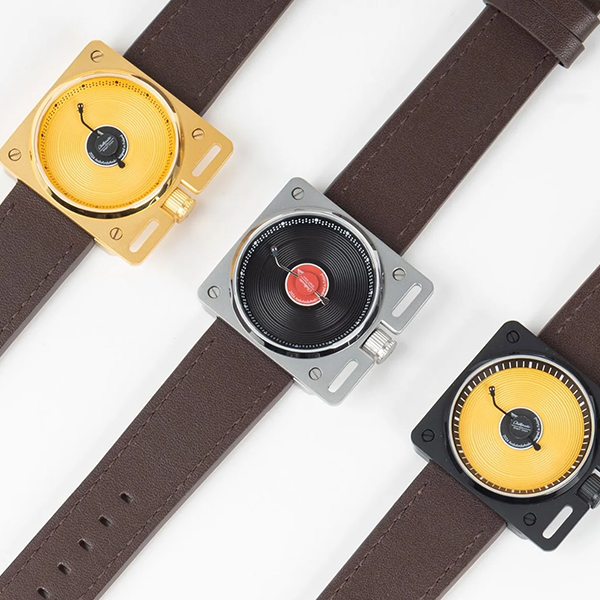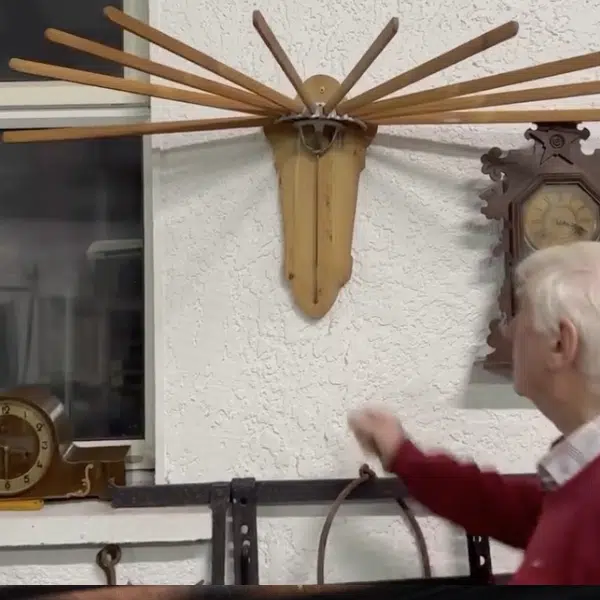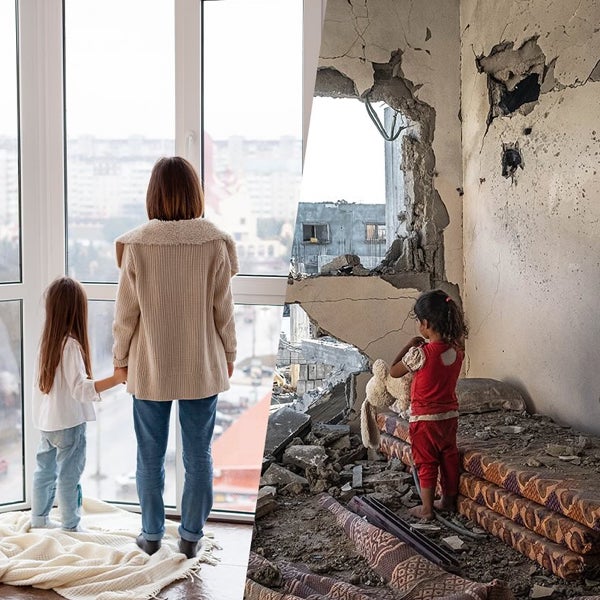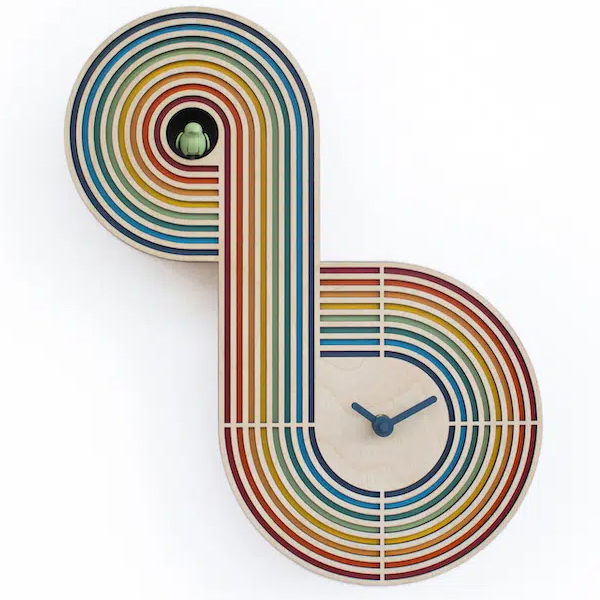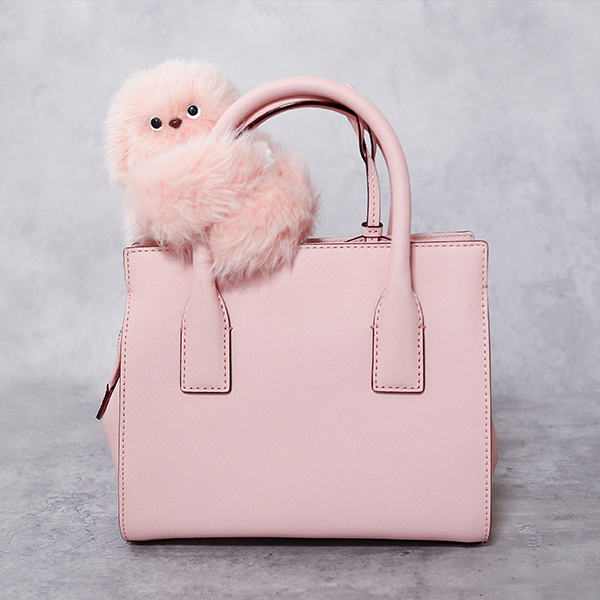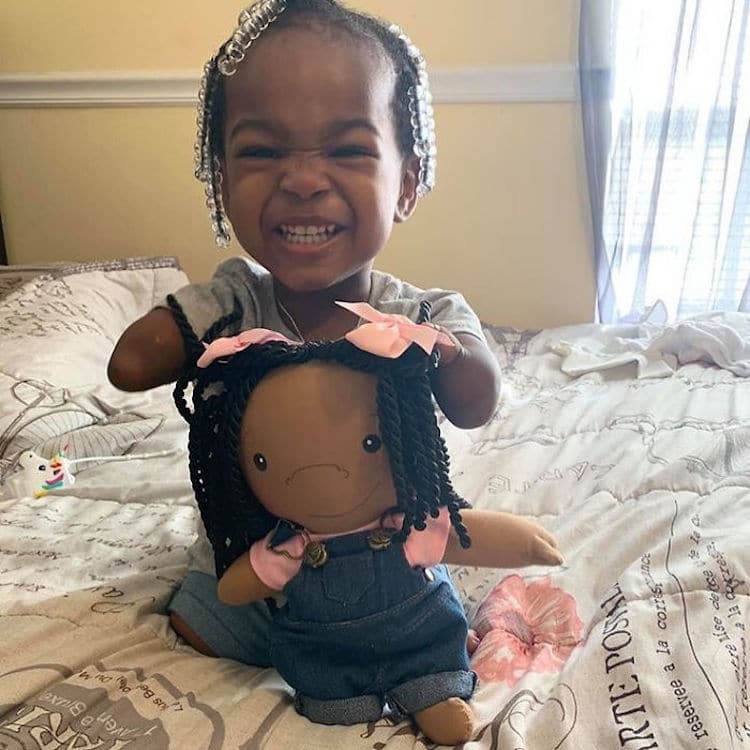
“When Ryann opened her doll, it was the first time she'd seen a likeness of herself in a toy. It was a powerful moment for her entire family.”
It is often said that “representation matters.” And if you needed any proof of this, just look to the excited smiles and tears of joy that come from children after they receive one of Amy Jandrisevits‘ handmade dolls. The former social worker is a skilled crafter who specializes in a unique kind of doll making: look-alikes for those with visible physical differences.
Jandrisevits had the idea for these types of beloved toys after noticing the general lack of diversity and range of physical expressions that were on the market. Putting into practice her personal credo, “If you see something that needs to be changed, do something,” she has spent the past four years making dolls that double as inspirational works of art.
Jandrisevits' dolls are completely customized based on the people she is creating them for. After receiving a doll request, she pays careful attention to the details that are presented in the source photographs—ethnicity, medical issues, physical characteristics—as well as any other distinctive features of her future recipients. Afterward, at her rounded wooden dining table, Jandrisevits begins the doll construction process.
It can take up to seven hours to complete one figure, and she uses that time to thoughtfully consider how she will illustrate the subject. “Every single doll tells a story and some are raw and heartbreaking and emotional,” Jandrisevits tells My Modern Met. “I am privileged to be a part of their stories and honored to get a glimpse into their world. I don't take that lightly.”
The meticulous work is seen by Jandrisevits as a direct reflection of the recipients themselves. “We need to see each child as a work of art—a masterpiece. While doll-making is an art form, the real canvas is the child him/herself. If we want to become a society that values differences and inclusivity, this is where we start. We start with something as simple as a doll—a human likeness.”
Jandrisevits has made more than 300 of the stunning heartfelt creations. Messages of equity permeate Jandrisevits' work, and she is adamant in displaying actions that reaffirm those convictions. “Typically, parents or caregivers pay for the dolls—about $100 with shipping per doll,” she explains. “When they can’t afford it, I’ll find a way to cover it myself. Whatever it costs, whatever I must do, I’m going to get a doll in the hands of these children. This isn’t just a business. It’s the right thing to do.”
Although she is a little taken aback by the sheer popularity and success of the dolls, she is not surprised by the feelings of inspiration and empowerment each work brings, “On a bigger scale it tells you how desperate we are for representation,” she shares. “I’m changing the narrative one person at a time.”
Dollmaker Amy Jandrisevits creates stunning replicas of children with physical differences on her dining room table.
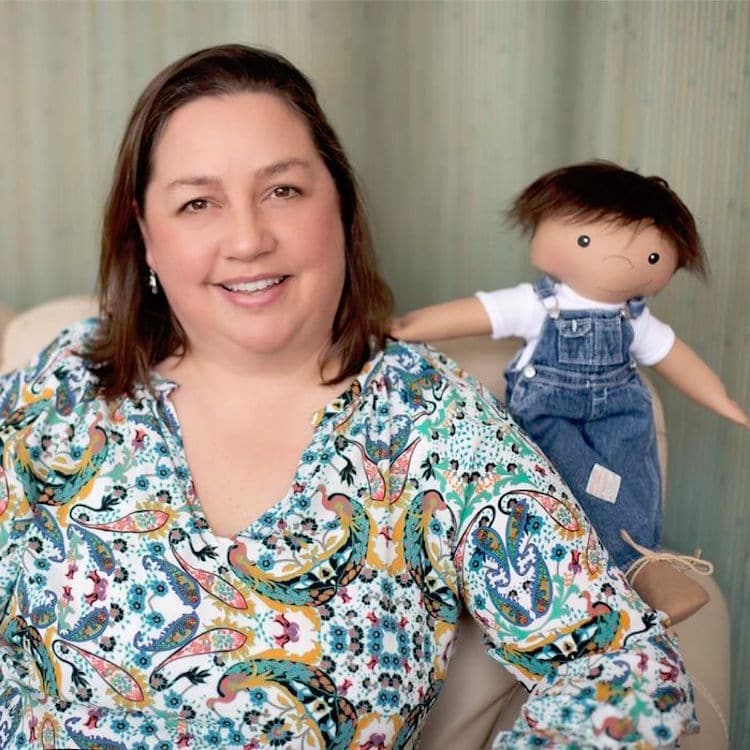
Each doll is completely customized based on the recipient and can take up to seven hours to complete.
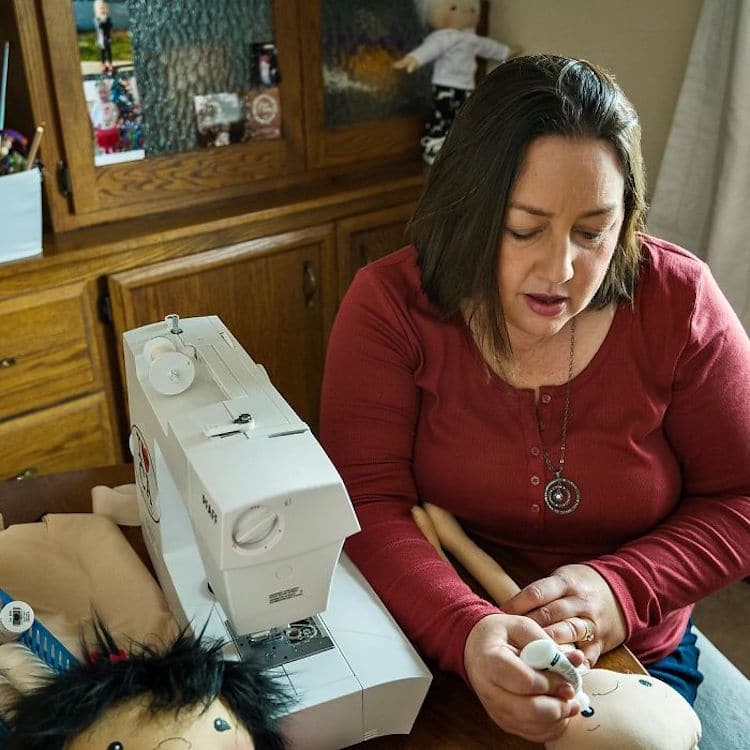
Here are some of the happy doll recipients:
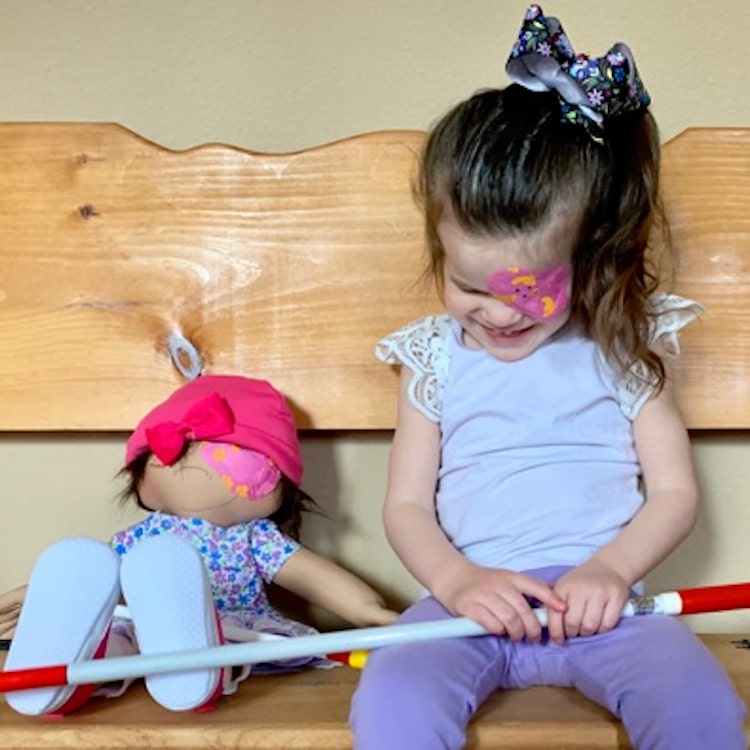
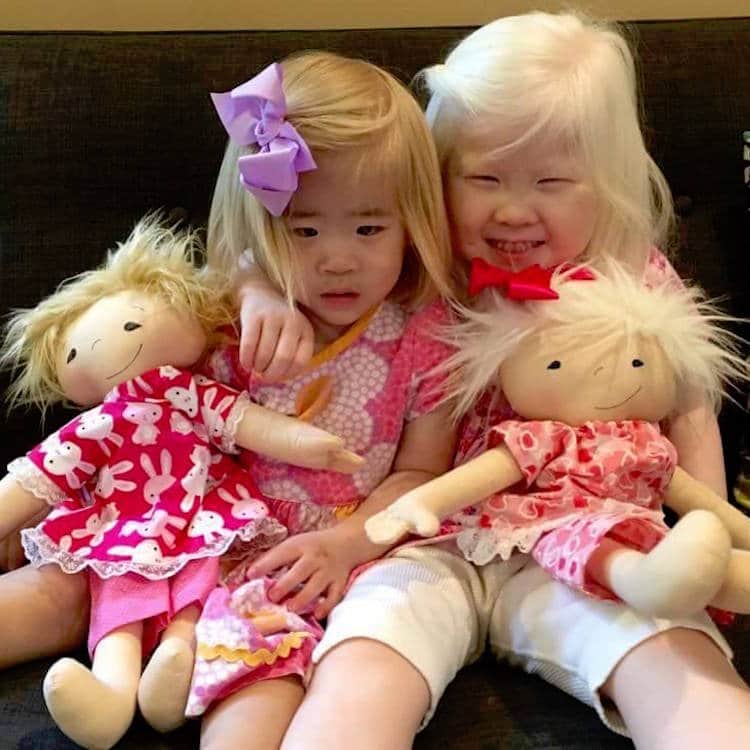
“Initially I made dolls for kids with limb differences, but shortly after she started, she was asked to consider making dolls for kids with Chinese features and albinism. These dolls are important in areas such as attachment and self-acceptance.”
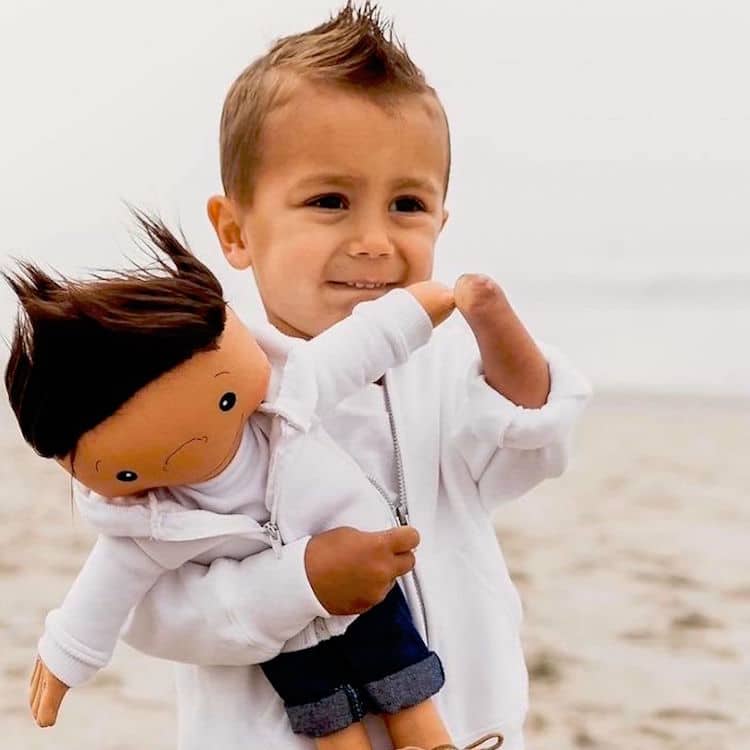
“Tate immediately noticed that his doll has a hand just like his. Kids don't always understand what representation means but they know how it feels.”
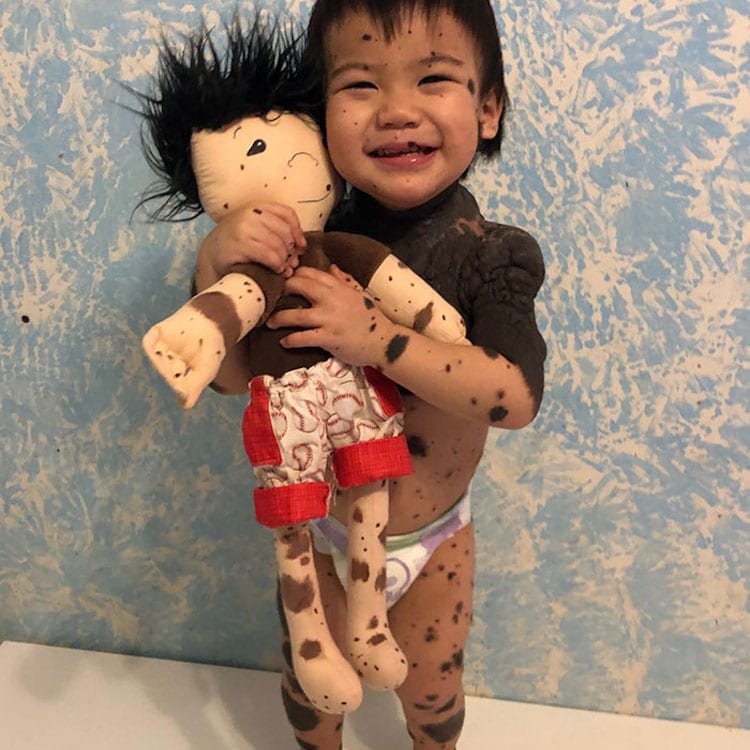
“Keagan takes ‘Chip' (named after a chocolate chip) to every doctor's appointment and hospital stay. This is the essence of play therapy in a medical setting.”
Amy Jandrisevits: Facebook | Instagram | GoFundMe
My Modern Met granted permission to feature photos by Amy Jandrisevits.
Related Articles:
Barbie Introduces More Diverse Dolls to Show Beauty Comes in Many Forms
Grandpa with Vitiligo Crochets Dolls with Same Skin Condition to Give Kids Self-Esteem
Teacher Missed Her Students So She Knit 23 Adorable Dolls to Represent Each of Them
Mattel Launches Line of Gender Neutral Dolls That Are Endlessly Customizable and “Free of Labels”











































































